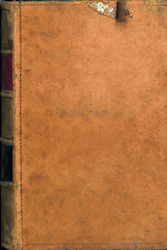Major Heintzelman to the Adjutant General.
Headquarters Brownsville Expedition,
Fort Brown, Texas, February 2, 1860.
SIR: Having received instructions from the commander of the department to collect the names of the killed, and ascertain the damage done by Cortinas and his command, I left Roma on the 15th and arrived here on the 21st of January with Captain Stoneman’s cavalry.
On the march I found all the ranches but one on the road this side of Edinburg deserted, and many burned, until we came almost in sight of this town.
Some half dozen Mexicans were seen at a ranch called San Rosario, thirty-five or forty miles above this. They were pursued, but escaped into the chapparal. They undoubtedly belonged to Cortinas’s bands, as the mail-carrier was robbed at this place a few days before. This is the only sign of the enemy seen on the road. I have no information on which I can rely of any parties being on this side of the river. Small parties frequently cross, steal cattle, and return to the Mexican side. The river is very low and narrow, and easily crossed, so that it is impossible to prevent this entirely. It can only be done by crossing or occupying the Mexican side of the river. The whole frontier on our side is abandoned and waste.
I hear of small parties on the Mexican side of the river, and well equipped, with arms, ammunition, and supplies. These must have been obtained from the Mexicans, as few escaped from their defeat with arms. Cortinas has the sympathy and aid of the population, and the feeling against the Americans is very great.
With one of the Texas commissioners I called on General Guadaloupe Garcia, the Mexican commandant at Matamoras, and he showed us an order from the secretary of war of Mexico, through the governor of Tamaulipas, directing him to co-operate with our troops to break up these marauding parties. I have got to learn of his having taken any steps to do so, and doubt of his ability, under the present state of feeling, to accomplish anything should he attempt it.
With Captain Stoneman’s company and two companies of rangers in service of the United States, I am endeavoring to protect the country as far as Ringgold barracks, and induce the inhabitants to return to plant and collect their cattle.
I have the honor to be, sir, very respectfully, your obedient servant,
S. P. Heintzelman,
Major 1st Infantry, Commanding.
Col. S Cooper,
Adjt. Gen. U. S. A., Washington, D. C.
A letter in Difficulties on Southwestern Border, House Documents, Volume 126; Volume 128, United States House of Representatives, U.S. Government Printing Office, 1860
During the 12 years following the Mexican-American War there were present on the frontiers of Texas and Mexico many factors that tended to create disturbances. The topography of the country, the sparsity and general character of its population, the lack of an extradition treaty and of sufficient national authority, wild Indians of uncertain abode, the Mexican tariff system, all caused friction and gave encouragement to lawlessness which not only retarded the development of the region but often threatened to interrupt friendly relations between the two republics. [Border Troubles along the Rio Grande, 1848-1860, The Southwestern Historical Quarterly, Vol. 23, No. 2 (OCTOBER, 1919)]
